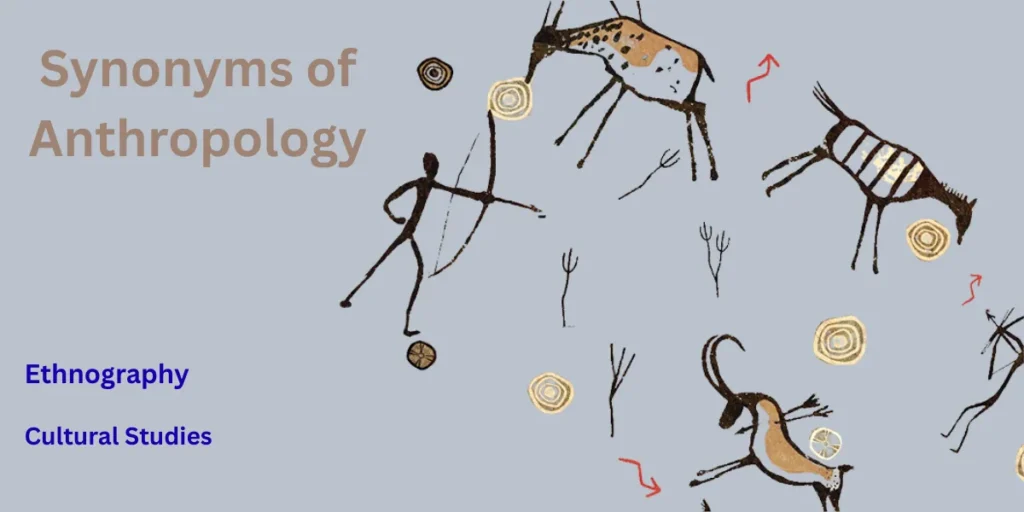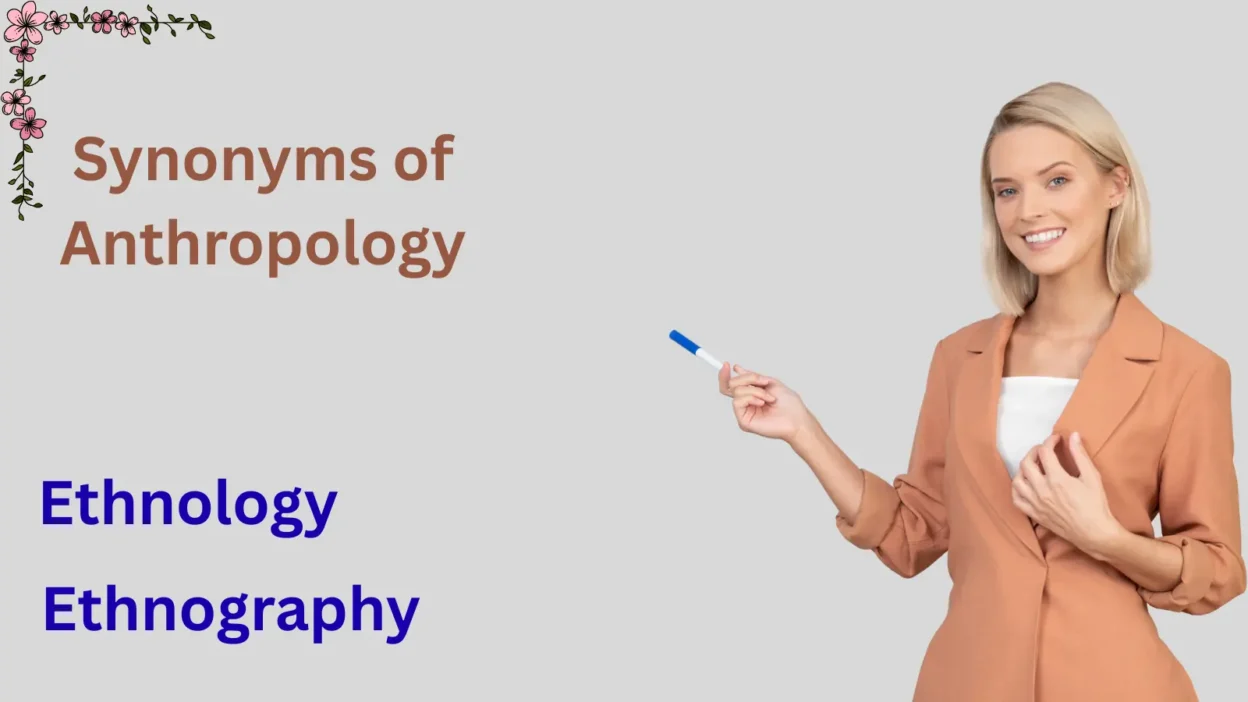Synonyms of Anthropology, such as Ethnology, Sociocultural Studies, and Human Science, reflect the diverse approaches to studying human life. For example, “Ethnology” emphasizes the comparative study of cultures, while “Human Science” highlights the broader scientific understanding of people and societies. These terms capture different angles of anthropology, from cultural traditions to biological evolution and social structures.
If you’re writing about human origins, cultural practices, or the science of societies, using the right synonym helps set the right tone. In this guide, we’ll explore a variety of ways to refer to anthropology and when each is most appropriate.
These synonyms of anthropology not only enrich your writing but also deepen your perspective on humanity’s complexity. From ancient civilizations to modern societies, the language of anthropology is as dynamic as human life itself.
What Does Anthropology Mean?
Anthropology is the scientific study of humans, exploring their origins, cultures, behaviors, and social patterns. The word comes from the Greek anthropos (human) and logia (study). Traditionally, anthropology has been divided into subfields like cultural anthropology, biological anthropology, linguistic anthropology, and archaeology.
Depending on how you use the word, anthropology can evoke:
- Curiosity about human origins
- Insight into cultural diversity
- Connections between past and present
- Scientific exploration of societies and behaviors
Synonyms of Anthropology with Usage Guidance
1. Ethnology
Meaning: The comparative study of different cultures.
Example: “She specialized in ethnology, comparing tribal traditions across continents.”
Use When: Highlighting cultural comparisons.

2. Ethnography
Meaning: The detailed description of a culture based on fieldwork.
Example: “His ethnography of the village captured daily life beautifully.”
Use When: You want to stress first-hand observation and description.
3. Cultural Studies
Meaning: An interdisciplinary study of culture and society.
Example: “Cultural studies examine how media shapes identity.”
Use When: Writing in modern academic or media contexts.
4. Human Science
Meaning: The systematic study of human behavior and development.
Example: “Psychology and anthropology both fall under human sciences.”
Use When: Emphasizing scientific and interdisciplinary approaches.
5. Sociology
Meaning: The study of social structures and interactions.
Example: “Sociology and anthropology often overlap in research.”
Use When: Discussing societal systems and institutions.
6. Social Science
Meaning: The study of human society and relationships.
Example: “Anthropology is one of the core social sciences.”
Use When: Referring broadly to academic disciplines.
7. Humanities
Meaning: Studies that explore human culture, history, and expression.
Example: “Anthropology bridges the gap between sciences and humanities.”
Use When: Highlighting anthropology’s cultural and historical side.
8. Archaeology
Meaning: The study of past human life through artifacts.
Example: “Archaeology revealed new insights into ancient civilizations.”
Use When: Focusing on historical and material evidence.
9. Paleoanthropology
Meaning: The study of ancient human origins and evolution.
Example: “Paleoanthropology uncovered fossils linking early species.”
Use When: Emphasizing prehistoric or evolutionary aspects.
10. Primatology
Meaning: The study of primates to understand human evolution.
Example: “Primatology provides clues about social behavior in humans.”
Use When: Bridging human evolution with animal behavior.
11. Linguistic Anthropology
Meaning: The study of language within social and cultural contexts.
Example: “Her research in linguistic anthropology traced endangered dialects.”
Use When: Language is the focus of human study.
12. Cultural Anthropology
Meaning: The study of cultural variation among humans.
Example: “Cultural anthropology helps us understand traditions and rituals.”
Use When: Discussing living cultures and customs.
13. Biological Anthropology
Meaning: The study of human biology, genetics, and evolution.
Example: “Biological anthropology examines DNA to trace ancestry.”
Use When: Stressing the scientific and physical aspects.
14. Physical Anthropology
Meaning: Older term for biological anthropology.
Example: “Physical anthropology focused on human anatomy.”
Use When: In traditional or historical contexts.
15. Forensic Anthropology
Meaning: Applying anthropology to legal investigations.
Example: “Forensic anthropology helped identify the remains.”
Use When: Linking anthropology with law and criminology.
16. Anthropometry
Meaning: The measurement of human bodies and features.
Example: “Anthropometry was used in early physical anthropology.”
Use When: Talking about measurement, health, or design.
17. Ethnohistory
Meaning: Studying cultures through historical records and oral traditions.
Example: “Ethnohistory reconstructed lost traditions of indigenous people.”
Use When: Bridging history with anthropology.
18. Human Ecology
Meaning: The relationship between humans and their environments.
Example: “Human ecology explores how societies adapt to nature.”
Use When: Focusing on sustainability and the environment.
19. Cultural History
Meaning: The study of traditions and ideas over time.
Example: “Cultural history connects anthropology with historical events.”
Use When: Stressing tradition and heritage.
20. Anthropogenesis
Meaning: The study of human origins.
Example: “Anthropogenesis explores the evolutionary path of humans.”
Use When: Technical or scientific contexts.
21. Ethnoscience
Meaning: The study of how cultures classify and interpret knowledge.
Example: “Ethnoscience revealed indigenous medical practices.”
Use When: Highlighting cultural knowledge systems.
22. Anthroposophy
Meaning: A philosophy of human spiritual development.
Example: “Anthroposophy influenced education and health practices.”
Use When: Referring to spiritual or holistic contexts.
23. Ethnopsychology
Meaning: The study of cultural differences in psychology.
Example: “Ethnopsychology explains how culture shapes emotion.”
Use When: Discussing cultural approaches to the mind.
24. Ethnophilosophy
Meaning: Philosophical thought within cultural traditions.
Example: “Ethnophilosophy values indigenous wisdom.”
Use When: Connecting anthropology with philosophy.
25. Ethnobotany
Meaning: The study of how cultures use plants.
Example: “Ethnobotany reveals ancient healing traditions.”
Use When: Highlighting cultural-ecological relationships.
26. Anthropogeography
Meaning: The study of human distribution across regions.
Example: “Anthropogeography explained migration patterns.”
Use When: Writing about geography and movement.
27. Comparative Anthropology
Meaning: Studying human cultures in relation to one another.
Example: “Comparative anthropology compared kinship systems worldwide.”
Use When: Stressing similarities and differences across societies.
28. Folk Studies
Meaning: Research into folklore and traditional practices.
Example: “Folk studies preserved disappearing oral traditions.”
Use When: Highlighting cultural storytelling and myths.
29. Social Anthropology
Meaning: The study of human societies and structures.
Example: “Social anthropology examines kinship and law.”
Use When: Emphasizing modern societies.
30. Human Paleontology
Meaning: The study of fossil remains of humans.
Example: “Human paleontology provides clues about early hominids.”
Use When: Scientific research into prehistoric humans.
Choosing the Right Synonym Based on Tone and Context
- Academic Writing: Use ethnology, ethnography, or sociocultural anthropology.
- Scientific/Technical Writing: Use biological anthropology, paleoanthropology, or anthropometry.
- Historical Focus: Use archaeology, ethnohistory, or cultural history.
- Cultural & Social Contexts: Use ethnopsychology, folk studies, or ethnobotany.
- Legal/Applied Contexts: Use forensic anthropology or human ecology.
Cultural Note: In Europe, the term social anthropology is more common, while in the U.S., cultural anthropology dominates. Also, words like anthroposophy carry philosophical and spiritual associations, which may not be accepted in scientific writing.
Conclusion
Anthropology is a vast field, and its synonyms highlight different aspects of human study—from culture and language to biology and history. Choosing the right synonym depends on the perspective you want to emphasize.
For a scientific tone, words like biological anthropology or paleoanthropology are best. For cultural nuance, lean on ethnology, ethnography, or folk studies.
By carefully selecting these terms, writers can make their work more precise, engaging, and contextually appropriate, ensuring their message resonates with both academic and general audiences.





